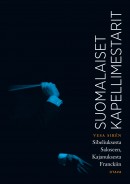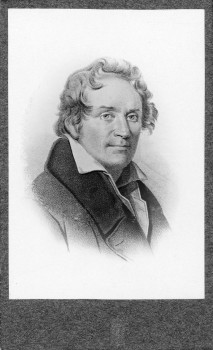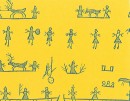Tag: music
Vesa Sirén: Suomalaiset kapellimestarit. Sibeliuksesta Saloseen, Kajanuksesta Franckiin [Finnish conductors. From Sibelius to Salonen and from Kajanus to Franck]
17 February 2011 | Mini reviews, Reviews
 Suomalaiset kapellimestarit. Sibeliuksesta Saloseen, Kajanuksesta Franckiin
Suomalaiset kapellimestarit. Sibeliuksesta Saloseen, Kajanuksesta Franckiin
[Finnish conductors. From Sibelius to Salonen and from Kajanus to Franck]
Helsinki: Otava, 2010. 1,000 p., ill.
ISBN 978-951-1-21203-1
€ 38, hardback
This work, by music critic Vesa Sirén – awarded the Finlandia Prize for non-fiction in 2010 – attempts to explain what makes a good orchestra conductor. Including hundreds of interviews, the book takes a chronological approach, presenting portraits of sixty conductors from the 1880s up to current students of conducting. There are also contributions from music critics, as well as even tougher assessments from musicians, contemporaries of the conductors. The high standard of Finnish music education, which has been easily accessible to young people – at least until the recent times –, provides part of the answer, as does the conducting course at the Sibelius Academy under the long-serving leadership of Jorma Panula. Sirén’s archival research has unearthed some forgotten treasures, including the lost archives of Robert Kajanus and conductor’s notes in Jean Sibelius’ own handwriting.
Translated by Ruth Urbom
Blowing in the wind
26 November 2010 | Reviews

Clarinettist who travelled: Bernhard Crusell
Bernhard Crusell: Keski-Euroopan matkapäiväkirjat 1803–1822
[Bernhard Crusell: Travel Diaries from Central Europe, 1803–1822]
Suom. ja toim. [Translated into Finnish and edited by] Janne Koskinen
Helsinki: Suomalaisen kirjallisuuden seura [Finnish Literature Society], 271 p., ill.
ISBN 978-952-222-090-5
€28, hardback
Born the son of a poor bookbinder on the west coast of Finland, Bernhard Crusell (1775–1838) had talents as a clarinettist and composer that brought him considerable fame, both in his native country and further afield. Hannu Marttila reads the diaries he wrote on his travels in Europe, where his meetings with the great and the good chart the emergence of the new Romantic sensibility
‘Felix is a most beautiful child, and he is also said to be very unassuming. In his compositions one immediately recognises the signs of genius and good training. He continues to study under Zelter, and, thanks to an anticipated large inheritance, he, too, may become an independent composer. People here think he may even become another Mozart.’ More…
Teemu Kupiainen & Stefan Bremer
Music on the go
3 March 2010 | Extracts, Non-fiction

A little night music: Teemu Kupiainen playing in Baddi, India, as the sun sets. Photo: Stefan Bremer (2009)
It was viola player Teemu Kupiainen‘s desire to play Bach on the streets that took him to Dharamsala, Paris, Chengdu, Tetouan and Lourdes. Bach makes him feel he is in the right place at the right time – and playing Bach can be appreciated equally by educated westerners, goatherds, monkeys and street children, he claims. In these extracts from his book Viulun-soittaja kadulla (‘Fiddler on the route’, Teos, 2010; photographs by Stefan Bremer) he describes his trip to northern India in 2004.
In 2002 I was awarded a state artist’s grant lasting two years. My plan was to perform Bach’s music on the streets in a variety of different cultural settings. My grant awoke amusement in musical circles around the world: ‘So, you really do have the Ministry of Silly Walks in Finland?’ a lot of people asked me, in reference to Monty Python. More…
Morning coffee yoik
29 January 2010 | This 'n' that
The Sámi, or Lapp, people invented yoiking (juoiggus; in Finnish, joiku) aeons ago. Today, this monophonic vocal music, or chanting, is still practised by Sámi artists, among them Wimme Saari (born 1959 in Enontekiö, 300 km north of the Arctic Circle, a son of a reindeer herdsman), who’s brought a new dimension to this ancient art form. More…
Glenda Goss Dawn: Vieläkö lähetämme hänelle sikareja? [Do we still send him cigars?]
30 December 2009 | Mini reviews, Reviews
 Vieläkö lähetämme hänelle sikareja? Sibelius, Amerikka ja amerikkalaiset. 24 tarinaa
Vieläkö lähetämme hänelle sikareja? Sibelius, Amerikka ja amerikkalaiset. 24 tarinaa
[Do we still send him cigars? Sibelius, America and Americans: 24 stories]
Translated into Finnish (from the manuscript) by Martti Haapakoski
Helsinki: WSOY, 2009. 268 p., ill.
ISBN 978-951-0-35517-6
€ 35, paperback
Finnish composer Jean Sibelius (1865–1957) was very highly regarded in the United States; the world’s first Sibelius appreciation society was set up in a small town in Pennsylvania, and at one time there was even a sort of Sibelius cult in Boston. In 1935 American radio listeners voted Sibelius their favourite living composer of symphonies. Walt Disney was an admirer of Sibelius’ music, though his plan to transfer The Swan of Tuonela to the big screen was never realised. Sibelius’ affinity for fine cigars was widely known, and sending boxes of cigars to the composer became a typical expression of admiration among Americans. Cigars were sent by regular citizens as well as prominent figures like Louis Armstrong. This book consists of 24 accounts describing interactions between Sibelius and Americans. It also details rises and falls in Sibelius’ popularity.Glenda Dawn Goss, is an American expert on Sibelius and possesses a doctorate in musicology. She has lectured at the Sibelius Academy in Helsinki since 2007.
Armas Järnefelt. Kahden maan mestari [Armas Järnefelt. Maestro of two countries]
2 October 2009 | Mini reviews, Reviews
 Armas Järnefelt. Kahden maan mestari
Armas Järnefelt. Kahden maan mestari
[Armas Järnefelt. Maestro of two countries]
Toim. [Ed. by] Hannu Salmi
Helsinki: Suomalaisen Kirjallisuuden Seura, 2009. 438 p., ill.
ISBN 978-952-222-057-8
€ 35, hardback
The conductor and composer Armas Järnefelt (1868–1959) was a member of one of Finland’s most prominent cultural families. His sister Aino was married to the composer Jean Sibelius. From 1905 he was the conductor of the Royal Opera in Stockholm and became a Swedish citizen. In the 1930s Järnefelt served as the artistic director and conductor of the Finnish Opera, forerunner of today’s Finnish National Opera. This book covers the various stages of his life and surveys the background to his compositions, with input from a number of Finnish music experts. Järnefelt, as a composer of beautiful melodies, was a part of the National Romantic tradition; his best-known piece, Berceuse (1904), is familiar to listeners around the world in many adaptations. Influences from Richard Wagner and Jean Sibelius are often seen in Järnefelt’s works. This book provides a more complete artistic portrait of Järnefelt than the rather superficial coverage previously available. Prior to the publication of this book, the committee responsible for the editorial work was incorporated as a society dedicated to Armas Järnefelt and has released musical scores, recordings and performances of Järnefelt’s works.
The Knife
Issue 4/1989 | Archives online, Drama, Fiction
First performed in 1989 at the Savonlinna Opera Festival. Veitsi (‘The knife’, 1984) is set in Helsinki. The opera is composed by Paavo Heininen and the libretto is by the novelist, poet, playwright Veijo Meri. Veitsi is not a traditional opera, but ‘music-drama’. Introduction by Austin Flint
ACT I
(Pamppu takes Havinen and the Poet to the Publisher’s office)
PUBLISHER
Hello there, you great novelist!
This is really a surprise,
as though you’d blown the door off its hinges.
PAMPPU
These pages are terrific. Take a look at them. More…
Death of a poet
Issue 4/1989 | Archives online, Articles
Over the last two decades, contemporary Finnish opera has not only become popular at home but has emerged as a significant force on the international music scene. Aulis Sallinen’s The Horseman, The Red Line and The King Goes Forth to France, and Joonas Kokkonen’s The Last Temptations all had their premieres in the 1970s and 1980s and have already earned respected places in the repertory of the Finnish National Opera and the Savonlinna Opera Festival, where performances are sold out months in advance.
The visit by the National Opera to New York’s Metropolitan Opera House in 1983 attracted widespread attention from press and public alike, and its productions of The Red Line and The Last Temptations were for the most part enthusiastically received. Finnish opera earned further international prestige from the joint commissioning of Sallinen’s The King by the Royal Covent Garden Theatre in London and the Savonlinna Festival, and from later performances by companies in Germany and the United States. More…

